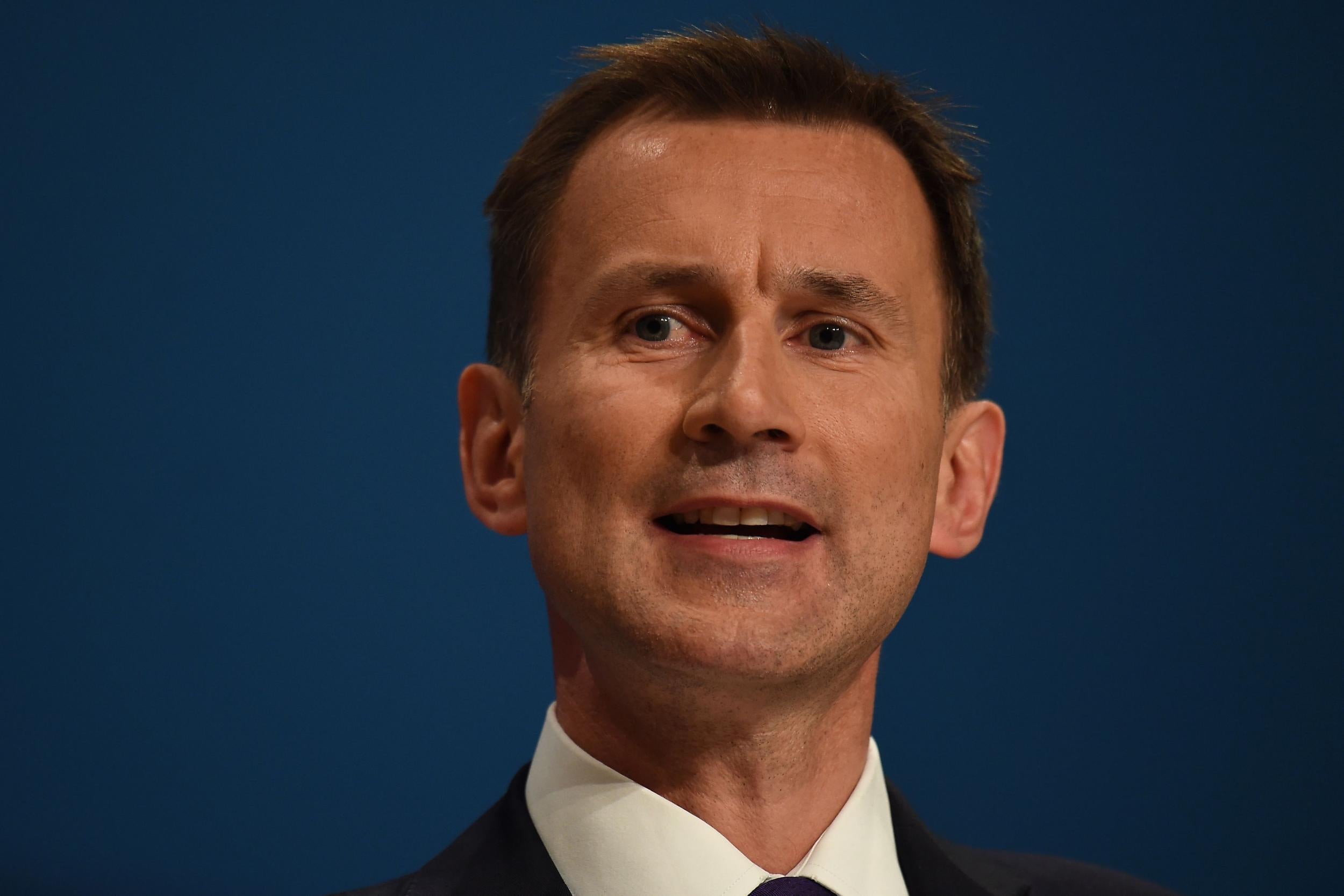Jeremy Hunt has caused a 'fundamental breakdown in trust' between the Government and doctors, Labour warns
Heidi Alexander warns Jeremy Hunt not to impose a new contract on doctors without their consent

Jeremy Hunt’s NHS policies have led to a “fundamental breakdown in trust” between the Government and the medical profession, Labour has said.
In a letter to the Health Secretary Heidi Alexander, Labour’s shadow health secretary, said Mr Hunt should not unilaterally impose a new contract on doctors without their agreement, warning it could lead to long-term strikes.
David Cameron has previously said doctors could be forced to accept a new contract if negotiations between the British Medical Association and the Government did not succeed.
“We can’t rule that out because we can’t simply go into a situation where the junior doctors have a complete veto and block over progress in our NHS,” he told BBC Radio 4’s Today programme last month.
Junior doctors are staging a rolling programme of strikes to stop the new contract, which they say will incentivise unsafe shift patterns and leave doctors working the longest hours worse off.
The Government says the changes to the contract, which re-define which working hours count as anti-social and therefore merit special pay, are necessary to improve weekend NHS services.
Ms Alexander called for the Government to make public concessions to doctors to restore trust between the NHS and politicians.
“I believe you should make an explicit and significant public commitment to further concessions … and I would encourage the BMA to re-enter negotiations should you do so,” she wrote in an open letter.
“If you are not willing to do this, a new contract should not be imposed. Such a decision on your part could lead to protracted industrial action and widespread anger among other NHS staff at a time when morale is already at rock bottom.”
Junior doctors walked out for one day in January for all services except emergency care, with another strike planned for this week.
There is strong public support for the strike action so far, according to a series of general opinion polls conducted about the dispute. Junior doctors themselves also overwhelmingly voted to strike with 98 per cent in favour on a high turnout.
Academic evidence of previous strikes also suggests that there is little impact on patient mortality from stoppages, though the Health Secretary has warned that patients could be harmed.
Medical professionals have criticised the Government’s use of academic studies to support their argument, with the editor of the British Medical Journal having written to Jeremy Hunt to accuse him of misusing a study apparently showing higher death rates on weekends.
Some researchers have even suggested a so-called “Hunt effect” – that apparent scaremongering by Mr Hunt has made sick people less likely to attend hospital on the weekends for fear of bad care.
This may have led to higher mortality amongst people who listen to Mr Hunt’s claims, the researchers have suggested.
Mr Hunt has said most doctors would see no change to their pay from the changes but admitted that those who work the very longest hours could lose money.
As well as fears of lower compensation, doctors have also however warned that patient safety could be put at risk as hospitals managers are incentivised to put doctors on unsafe shift patterns.
Doctors and academics say the apparent findings are not necessarily because care in the NHS is poorer on the weekends but because patients admitted on weekends are often simply more ill.
Both the Government and the British Medical Association, which represents doctors, have accused each other of refusing to properly negotiate.
Join our commenting forum
Join thought-provoking conversations, follow other Independent readers and see their replies
Comments
Bookmark popover
Removed from bookmarks